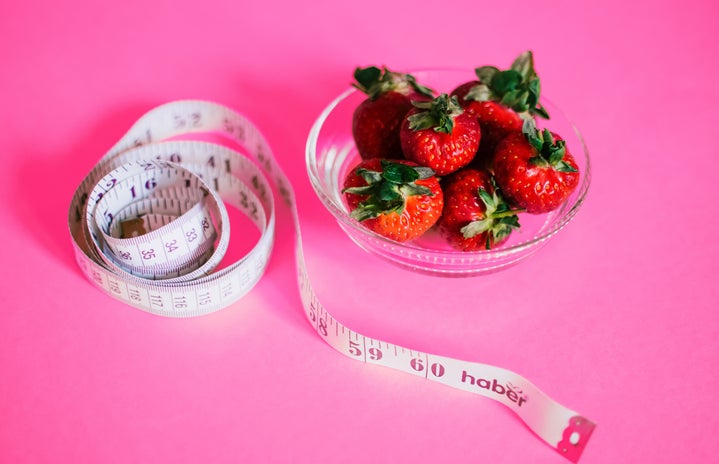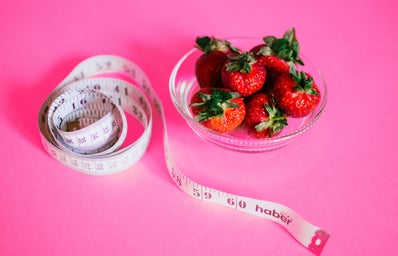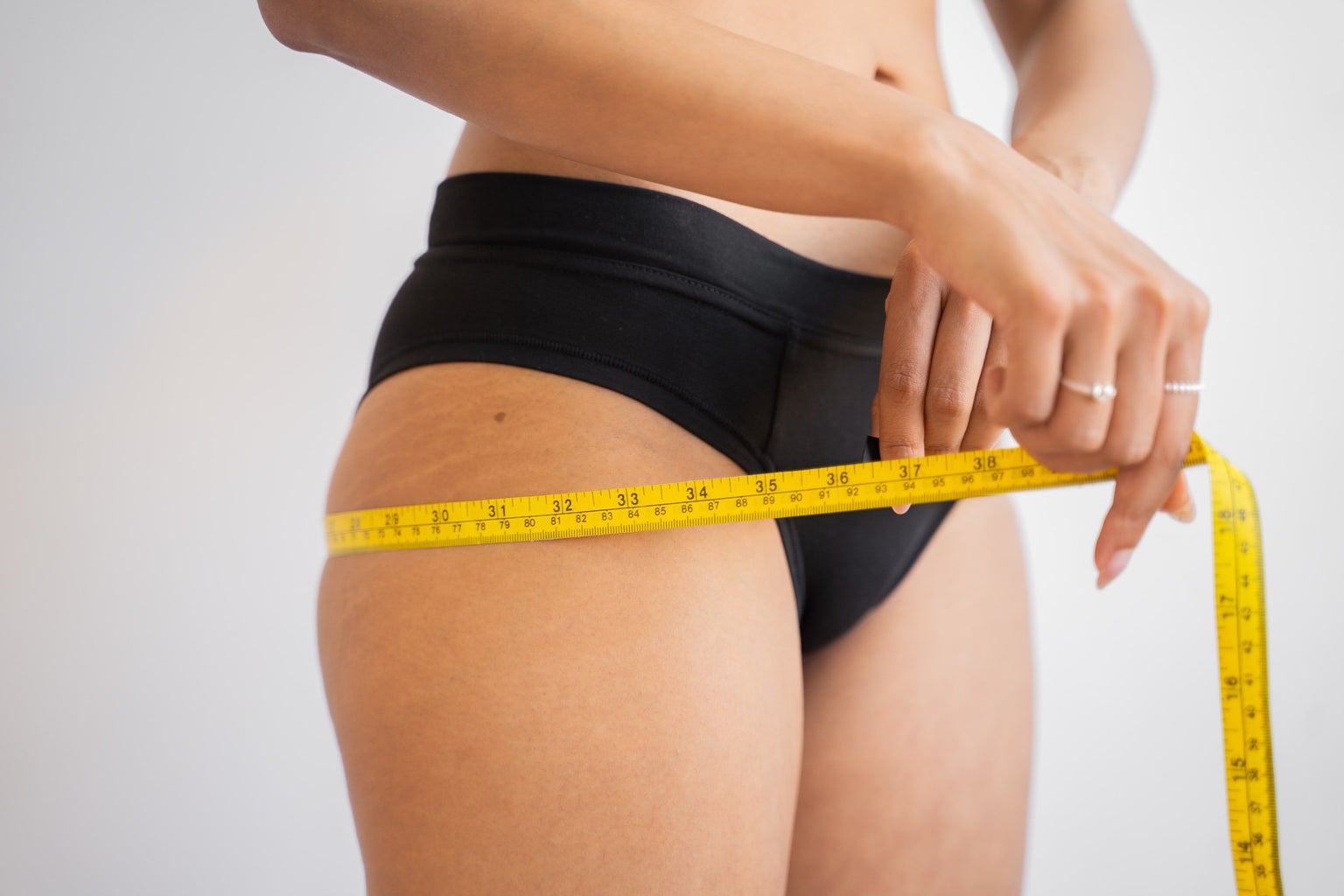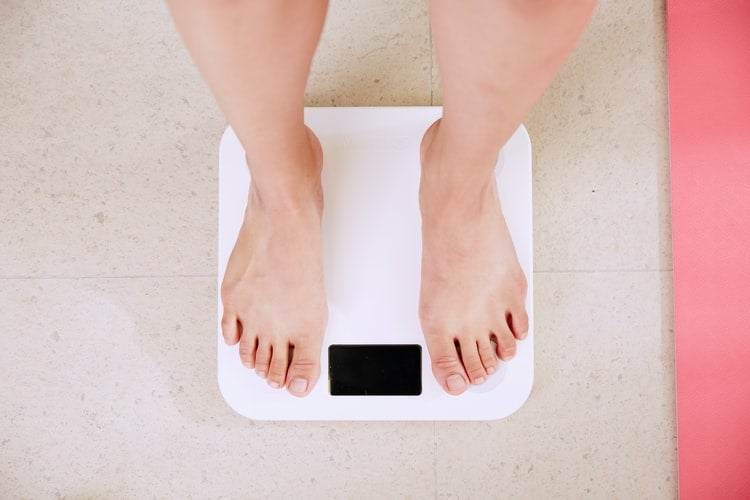TRIGGER WARNING: This piece contains discussion of eating disorders/disordered eating, please only view this article at your own discretion if such information could be harmful for you to consume.
A relatively new social media trend has begun cycling the internet space in the aftermath of a Bella Hadid video interview released by i-D Magazine on September 9, 2022. The trend, originating on TikTok, uses an audio snippet from the beginning of the video where she introduces herself by saying, “So my name… my name is Bella Hadid” with a sweet smile as she sports a wet-look ponytail and a very clean, fresh face with bleached brows. The video, titled “Beyond Bella Hadid” explores the woman she is past the supermodel imagery that is presented to the world in, what seems to be, a very genuine and casual setup. The eight-and-a-half-minute video shares shots of Hadid almost exclusively from her shoulders, sometimes her waist, up, which seems to try and center focus on her as the very real human that she is. She shares what’s important to her in people and what she aspires to attain as a person herself, first and foremost. Considering all of this, somehow the trend associated with the snippet of audio TikTok users pulled from the video has birthed an alarming narrative.
The audio seemed to originate in a TikTok video that spliced together a variety of shots of Bella in photoshoots and on runways, an almost fancam-style video that simply was trying to highlight her success as a model, however, the audio fell into the hands of other users very quickly. Suddenly, a population of mainly young women started using this audio when posting videos with content alluding to the idea of feeling skinny.
Whether it’s body-checking or making an offhand joke about dabbing the grease off of your slice of pizza before eating it, the overwhelming majority of content circulating under this audio has sinister, pro-eating disorder and fatphobic undertones. The first example of this trend that I personally came across was a woman’s TikTok about her swim team suit in which the caption over the video read something along the lines of “when your suit zips up easily” and she spins around, lip-syncing the phrase “my name is Bella Hadid.” While at first, the video does seem harmless, it’s disturbingly easy to use that content as a comparison and to acknowledge the superior air that’s being associated with feeling or being thin.
Bella Hadid herself is in no way responsible for the internet trend as the context has unfortunately been manipulated. Especially given the way she has discussed her own experience with eating disorders and the damage it has done to her perception of her body, it’s unsettling how comfortable people are with using her as a comparison and how her figure has almost been weaponized.
The most confusing part of the trend is the way that the audio was pulled from a video that had nothing to do with Hadid’s body. Only once in the video does she even mention food and it’s in the form of sharing how her current go-to snacks are often pizza, seaweed snacks and sour patch kids. There is no focus on diet or the pressure of maintaining a particular size. A large part of her message in the i-D video is that “life is so much more than perfectionism and living up to other people’s standards of yourself” and how she hopes to be remembered by people “as a supporter of truth and light and [being] compassionate and passionate.” Instead, the public of the internet chose to boil her identity down to one thing and one thing only: being skinny.
It’s no surprise that the female body is commodified and often treated as a trend in which certain shapes and sizes come in and out of the cycle, but we have to start understanding the real issue in commentary surrounding a superior body image. Playing into the narrative of disordered eating and the desire to be thin with jokes and social media trends is not a form of progressive self-awareness, it’s really only driving home the idea that there is an ideal figure to obtain and that those who don’t possess it must be less than.
Sure, captioning a video with “me when I eat a salad for the first time in four years” while lip-syncing to the audio may not be as harmful as one with the caption “me when I say no to the flight attendant when she asks if I want a snack,” but both are still centering around food and making a choice that is associated with getting or being skinny. Regardless of how you look at it, both are inherently promoting the idea of restricting what it is you eat.
The craziest part of the trend is how Bella Hadid’s image is the central focus. Of course, as a model she is extremely well known for being an extraordinarily beautiful individual, but there’s more to that than what we see from her in editorials and runway shows, and she seems to try and share what’s beyond her pretty face in a load of her interviews. Not just in the i-D video, but in her story for their “The Ultra! Issue,” and even her cover story for Vogue’s April 2022 publication, both in which she discusses her political activism and the struggles she grew up with which did surround her body image and eating habits.
It’s hard for many women to craft their image beyond what we see as their outward appearance, and it can only be more difficult for a widely successful model, but for Hadid to have the courage to unveil other aspects of herself to the public and for those to be so blatantly disrespected and commodified has to be damaging beyond belief. I feel like many of us forget these big names are real people and that they spend time on the same social media platforms we do, so they’re largely exposed to a variety of the same trends we are. As a woman who has shared her “immediate trauma response is people-pleasing” in her April Vogue cover story, the same one in which she gets more detailed about the anorexia she faced during her high school years, it’s even more alarming that her character is being stripped down almost exclusively to the shape and size of her body. The narrative that’s being adopted is that Hadid’s perceived self-worth by the public is tied directly to her physique.
This doesn’t even stop with this particular trend. You can view any of Bella’s Instagram or TikTok posts and scroll through the comments only to be met with messages like “I guess I’m not hungry anymore” or “I wish I looked like her” or “I think I’ll just eat an almond today” (the last of which refers to a quote that’s done rounds online by her mother, Yolanda Hadid).
It’s not a compliment to address someone’s thinness in association with how you are striving for that by practicing disordered habits. It’s backhanded if anything. To reference a personal anecdote, I remember once being at a friend’s house and going out to the pool in their backyard with a few other friends. We were all in bathing suits, having a great time as we turned on a playlist and got ready to jump into the water, and out of the blue, one of these individuals comes up to me and very casually (in hindsight, way too casually) told me in a playful tone that I was the reason for her eating disorder. She giggled and walked off, yet I was stuck with a very unsettling feeling in the pit of my stomach. I did not know how to respond. I didn’t know if I was supposed to combat that with a positive comment on her body or how I was possibly expected to react to such a comment. It didn’t feel like a compliment, it felt like my body was being weaponized against someone else’s self-worth and that I, for some reason, had to be sorry for the way my genetics manifested themselves. Outside looking in, I suppose you could argue she was trying to tell me I looked good, but that boils down my appearance solely to the size and shape of my body and to be reduced only to that feels dehumanizing more than anything else.
The obvious, central issue with all of this is that a woman’s existence is being villainized and used as a means for others to project their own body and eating issues onto. Bella Hadid is definitely not the only woman who people do this with, it’s quite common within our current internet-sphere that any woman with a thin, slender figure is met with very similar reactions, but it is critical to address the way in which many social media users have bolstered a widespread trend that circles one woman’s physique in particular to fuel their negative perceptions of how they should look and what it takes to achieve that.
It’s easy to sit back and compare yourself, of course, especially to a model who most people agree is one of the most beautiful women in the world. We’ve been fed the idea of comparison, particularly as women, since we materialized. It’s something introduced to us at birth and force-fed to us as we age, and comparison exhibits itself in truly menacing ways when eating disorders manifest themselves. That’s why it’s so crucial to direct ourselves away from comparison however possible, and an internet trend where disordered eating habits are being glorified in a direct link to the identity of a ridiculously successful model is not aiding anyone in unlearning harmful comparison tactics. Eating disorders are inherently competitive and rely heavily on available comparison. To be conscious of this, and to be compassionate to others, is to be conscious of participating in trends which only worsen these conditions.
Let’s make one thing clear: Bella Hadid is not your scapegoat. Women who exist with this figure are not existing for you to project your disordered habits onto. Women of any shape or size do not exist for people to project their issues onto. The damage that projection causes are often not what these social media users are considering, or even concerned with in the slightest, and that’s because all of these disordered thoughts, habits and practices are inherently selfish; these individuals are only concerned with themselves and their image in comparison. But a woman posting in a cropped tee and low-rise jeans, no matter the size of her body, is not inviting that comparison, she is simply existing in her own skin and referencing her body in the way of making oneself feel worse or even better because they, in fact, don’t look like that, is not the fault of the woman but the viewer who chose to weaponize her imagery.




